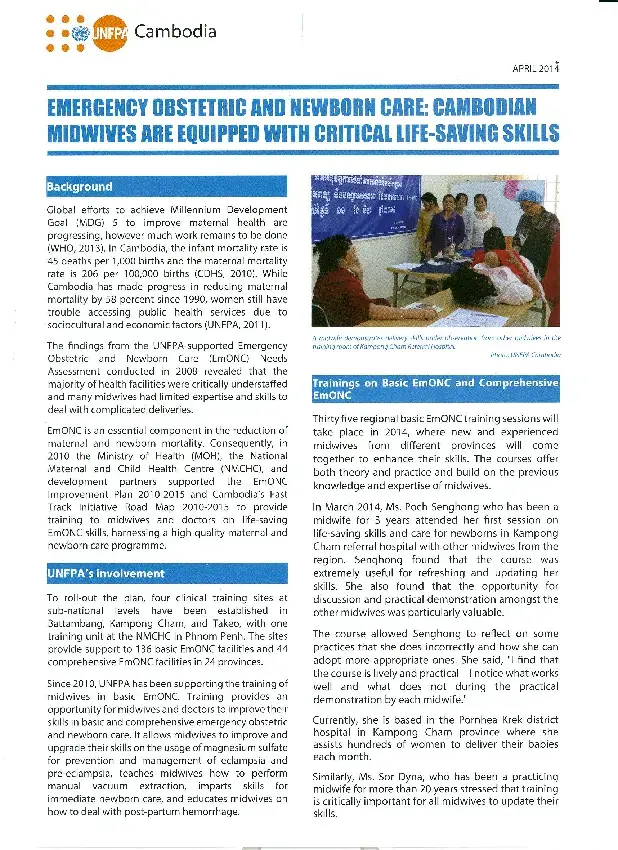UNFPA Somalia in collaboration with the Ministry of Health - Puntland, launched "End Fistula Campaign" at Juba Hotel, Bosaso, December 19, 2012. The Campaign was attended by higher government officials, community leaders, health workers, WAHA International and community members .
Obstetric fistula
An estimated 2 to 3 million women and girls in developing countries are living with obstetric fistula, a condition that has been virtually eliminated in industrialized nations. Obstetric fistula is preventable and in most cases treatable, and yet more than 50,000 new cases develop each year.
UNFPA and Reproductive Health Unit of the Ministry of Health organized the first ever observation of the International Day to End Fistula at the Fistula Repair Centre of Benderqasim Hospital in Bossaso on the 23rd of May, 2013.
The day marked the coming together of community health workers, community midwifery students, doctors, nurses and MOH officials as they showed solidarity with the efforts by different stakeholders aimed at ending obstetric fistula.
The month of December 2013 saw the deployment by UNFPA to Puntland of top-notch experts from the Institute of Family Medicine based in Nairobi to train local health professionals on basic and advanced life support in obstetrics as part of its capacity building program on improving maternal health care in Puntland.
The Ministry of Health in Puntland, in partnership with UNFPA, commemorated International Day to End Obstetric Fistula on May 23, 2015 as designated by the United Nations General Assembly. The event was successful and was attended by dignitaries and staff from different government departments including the local government, Ministry of Justice and other guests from the international community.
End Fistula Campaign 2012
No. of pages : 2
Publication date : 01/01/2012
Author : UNFPA
Dr. Elmi disclosed that during the campaign any fistula victim who will visit the hospital w o u l d b e p r o v i d e d w i t h a comprehensive service of surgery, counseling, food and accommodation, as well as money for transportation, clothes and hygiene products purchase. He also indicated that local health workers would simultaneously get on -the-job training on fistula surgery.
SAMOFAL Issue 9
No. of pages : 12
Publication date : 09/04/2012
Author : UNFPA Somalia Country Office
As part of rolling out the Minimal Initial Service Package (MISP) training inside Somalia, UNFPA Galkayo office organised in the period 27th to 29th December the third MISP training this year in Garowe. This was done to enhance the capacity of health services providers and programme managers who work with providing reproductive health services. The training was held in New Rays Hotel in the centre of the town.
Emergency Obstetric & Newborn Care
No. of pages : 2
Publication date : 01/04/2014
Author : UNFPA Cambodia

Although Cambodia has made progress in reducing maternal mortality by 58 percent since 1990, women still face problems in accessing health services. An assessment found that the majority of health facilities were critically understaffed and many midwives had limited expertise and skills to deal with complicated deliveries.
Titled "Darde Penhan" which means "The unnamable pain", the radio drama is a journey in the life of an afghan women living with obstetric fistula in Afghanistan today. From physical towards emotional pain because you have lost a child and you are isolated from your family and loved ones as it is difficult for them to ignore the smell urine and feces, to finally discover the possibility to find a treatment for your medical condition.
Overview
Women who give birth without skilled attendance are at risk of conditions which can have serious effects on health and wellbeing. Obstetric fistula is a devastating childbirth injury which leads to both physical and social harm for women.
Pagination
- Previous page
- Page 12
- Next page


